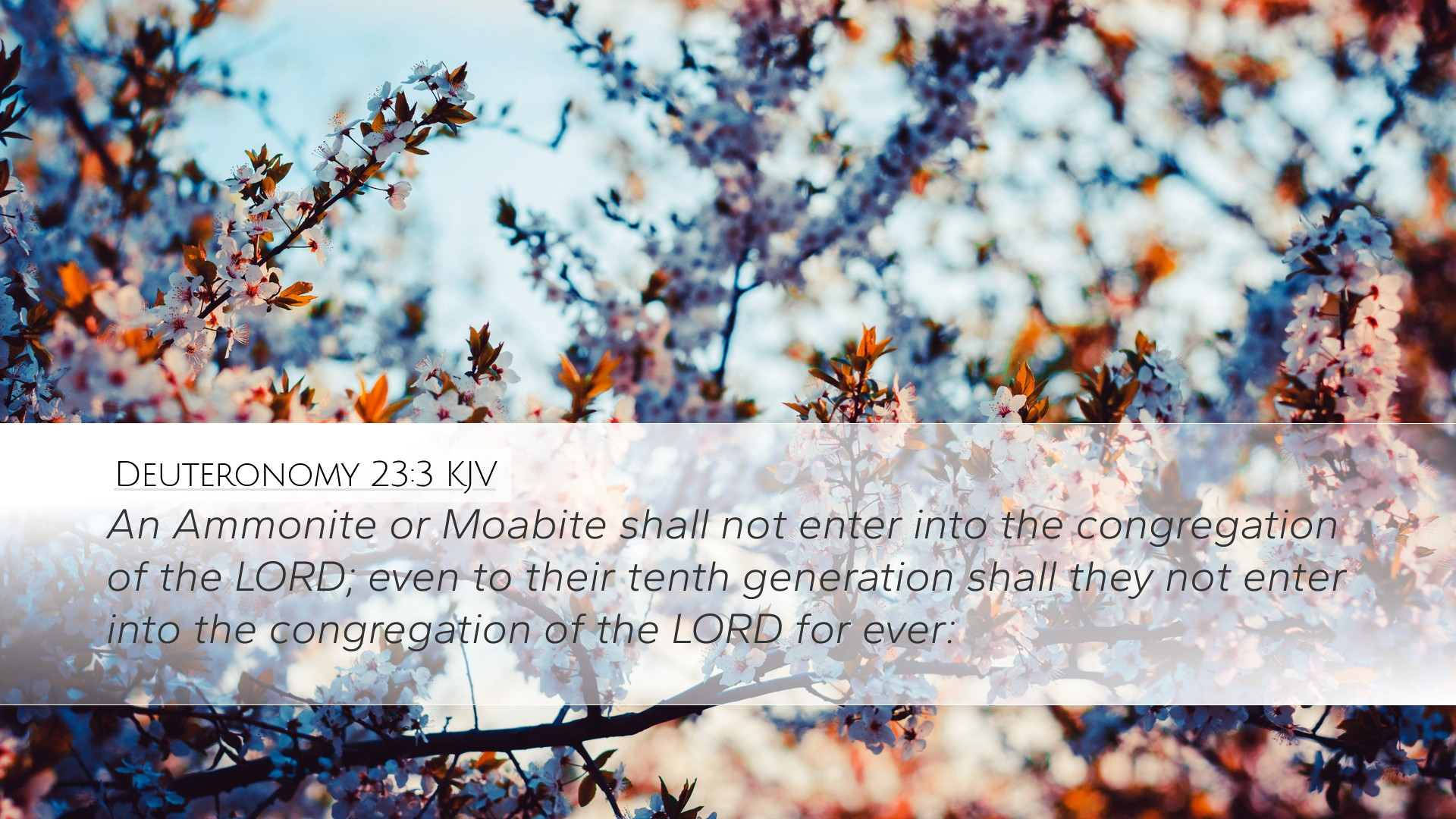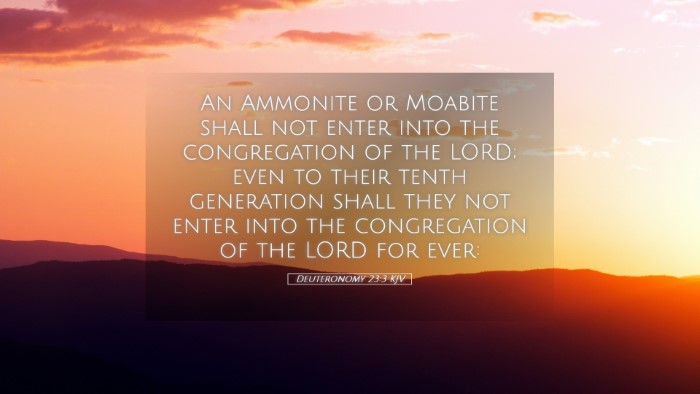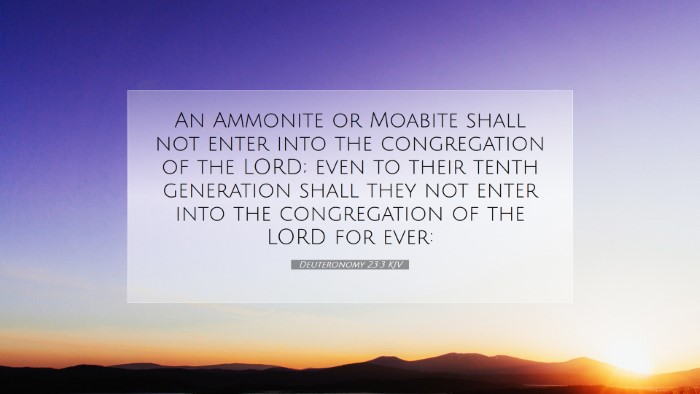Commentary on Deuteronomy 23:3
Deuteronomy 23:3 states:
"No Ammonite or Moabite shall enter the assembly of the LORD; none of their descendants, even to the tenth generation, shall ever enter the assembly of the LORD." (ESV)
Introduction
This verse presents an important aspect of the Old Testament concerning the Assembly of the Lord and the inclusion of foreign nations. The Ammonites and Moabites are specifically highlighted in this regulation. They were descendants of Lot, Abraham’s nephew, and had a complex relationship with Israel throughout history.
Historical Context
The prohibition of Ammonites and Moabites from the assembly reflects the historical enmity and opposition towards Israel. The narrative found in Genesis 19 depicts the origin of these nations through Lot, who was saved from the destruction of Sodom and Gomorrah. Consequently, their descendants adopted idolatrous practices that were antithetical to the worship of Yahweh.
Furthermore, the refusal of these nations to provide Israel with assistance during their journey through the wilderness is noted in Deuteronomy 23:4. This rejection established a longstanding conflict, perpetuating their exclusion from the assembly of the Israelites.
Theological Implications
From a theological perspective, this passage serves as a reminder of the holiness that God demands from His people. Matthew Henry notes that the assembly is reserved for those who are set apart for God's service. The criteria established in Deuteronomy emphasize the need for spiritual purity and loyalty to God’s covenant.
Albert Barnes emphasizes that this exclusion was not merely social but intended to uphold the covenantal integrity of Israel. It enforced the idea that maintaining doctrinal purity and correct worship practices are paramount in maintaining a right relationship with God.
Adam Clarke elaborates further by suggesting that these restrictions highlight how Israel was to be a separate and distinct nation dedicated solely to Yahweh. The practice of closing the assembly to the Ammonites and Moabites underscores a broader divine principle regarding the importance of maintaining a faithful and committed community that reflects God’s holiness.
Cultural and Social Considerations
The cultural ramifications of this regulation reveal the broader social dynamics within the Israelite communities. Throughout history, the integration of foreign peoples often led to syncretism and compromise of faith. The Lord's command here reflects His desire to protect Israel from the idolatrous practices of surrounding nations.
-
Protection of Identity: The strict boundaries serve to protect the identity and witness of Israel as a nation set apart for God.
-
Preservation of Worship: Maintaining a pure assembly ensures that the worship of Yahweh remains untainted by foreign ideologies and practices, which could lead to spiritual decay.
Application for Today
Modern readers, especially pastors and theologians, can draw lessons from this text regarding the importance of community purity and doctrinal fidelity. While the specific cultural context of the Ammonites and Moabites is not directly applicable today, the underlying principle of guarding the integrity of the faith community remains relevant.
Churches today must carefully navigate the balance of inclusiveness and doctrinal purity, ensuring that the core message and teachings of Christ are upheld. This necessitates a clear understanding of the faith and the implications of allowing ideologies contrary to the gospel into the fellowship of believers.
-
Community Integrity: Leaders should encourage a community centered around biblical truth, fostering an environment where faith can be nurtured and grown without compromise.
-
Welcoming but Distinguishing: While churches must remain welcoming to all, distinguishing the core beliefs from non-biblical teachings is necessary for ongoing spiritual health.
Conclusion
Deuteronomy 23:3 presents limitations for the assembly that offer significant theological and practical lessons. As a historical text, it invites readers to reflect on the importance of maintaining God's standards of holiness within the community of faith. The reflections of Matthew Henry, Albert Barnes, and Adam Clarke inspire deep consideration of the implications concerning community integrity, faithfulness, and the distinctive character required of God’s people.
In a world that constantly challenges the sanctity of the assembly, the lessons drawn from this ancient text remind contemporary believers that fidelity to God’s word and covenant is essential for spiritual vitality, corporate health, and fulfilling the divine calling in their lives.


